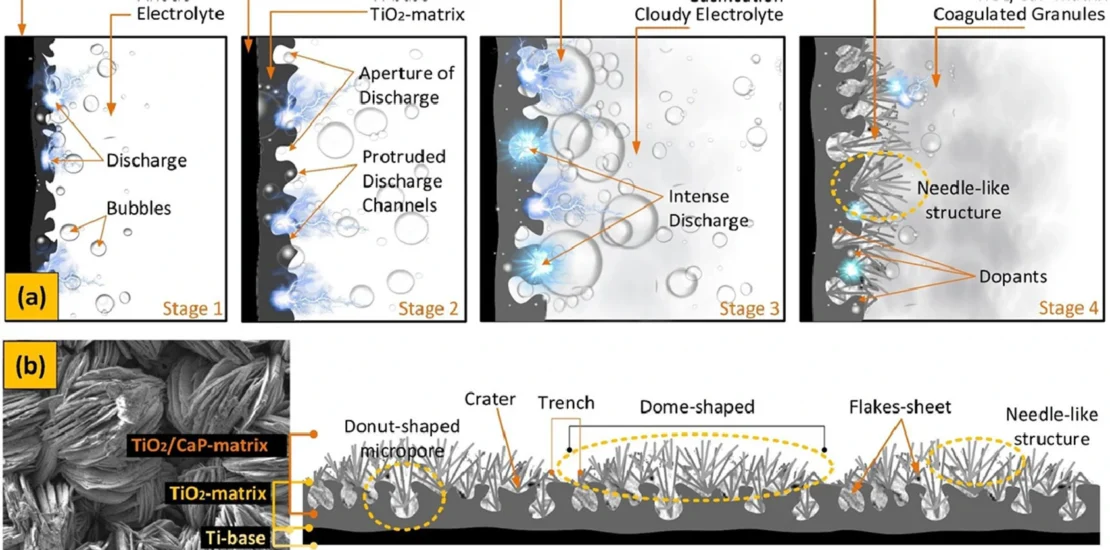- 28 April 2023
- Posted by: nemcatgroup
- Category: Publications

This study examined the effect of changes to the surface of CaP-based anodised titanium on osteogenesis and antimicrobial activity in vitro. The present work is proposed to investigate the mechanical stability of two different CaP/TiO2 micromorphology-based coatings, namely donut-shaped (350 V) and needle-shaped (450 V), that are fabricated by single-step micro-arc anodic oxidation at different conditions alongside with their cytocompatibility and antibacterial properties. The microhardness of the sample anodised at 450 V is ∼100 MPa lower than that seen in the sample fabricated at 350 V, but both resultant coatings were strongly adhere to the substrate. However, the coating at 450 V was observed to suffer from delamination, indicating the needle-like structure is mechanically unstable. After 7 days of SBF immersion, the 450 V sample was highly bioactive relative to the 350 V sample. However, MTT assays showed that the 450 V coatings showed lower growth rate of hFOB 1.19 at day 14, which indicates that although the structure does have a superior ability to form apatite, it has long-term negative implications possibly from the toxicity of the structure to bone growth. The Alizarin-red staining shows that 450 V sample shows a negative trend of osteogenic mineralisation, thus qualitatively validating the toxicity. For antimicrobial effects, the donut-shaped microstructures were shown to have adequate antibacterial properties compared to the needle-like structures. Overall, this study suggest that the donut-shaped TiO2 morphology is the best cementless interface for bone cell anchorage.
